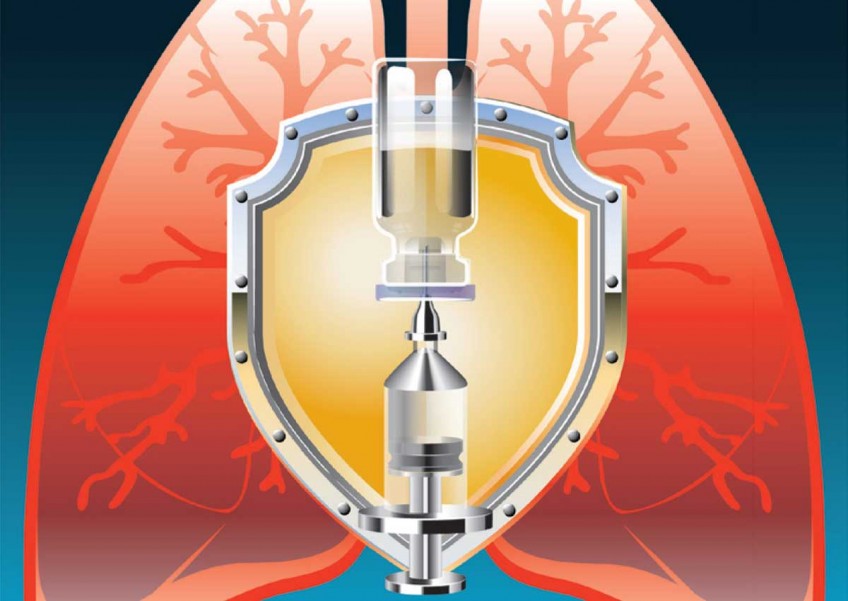Pneumonia: Prevention is the best defence


Uncle James (not his real name) dropped by my clinic the other day for his regular chit-chats with me.
He was accompanied by his three-year-old grandson, who sat on his lap as we chatted.
The 68-year-old told me that his daughter was expecting again and, this time, he will have a granddaughter.
Life is good for him and he is enjoying his family life.
But it was a totally different picture last year, when he was admitted to hospital and referred to me. Then, he was weathering a severe bout of pneumonia.
It started out innocently. He had symptoms of cough, fever, shivers and a lack of appetite, coupled with headaches, body aches and green-coloured sputum.
He saw a general practitioner and was prescribed some medication.
After a week, his condition did not improve. Instead, he started to feel breathless and also developed a feeling of tightness in the chest.
Sensing that something was amiss, he asked his son to take him to the hospital immediately.This prompt action led to a correct diagnosis and he was hospitalised with severe pneumonia.
Uncle James is just one of many pneumonia patients in Singapore and around the world.
Even boxing legend Muhammad Ali was hospitalised with pneumonia in 2014.
But there is a vaccine for this common lung condition.
In fact, a recently published study demonstrated that the pneumococcal vaccine, called Prevnar 13, can prevent community-acquired pneumonia in adults.
The CAPiTA study, published in the New England Journal Of Medicine, involved around 85,000 participants aged 65 and up.
It is one of the largest trials done to evaluate the efficacy of the vaccine for the prevention of community-acquired pneumonia.
Prevnar 13 is a pneumococcal conjugate vaccine (PCV). The advantage of a conjugate vaccine is related to the way the antibodies are produced by the body.
PCV induces a T-cell-dependent response, which results in plasma cells producing immunoglobulin G antibodies. It also elicits immunological memory, which helps the immune system remember an infection and fight it in the future.
The outcome of the CAPiTA study is very significant and can help countries with an ageing population.
It is all the more important to raise awareness of pneumonia and prevention among the public.
In Singapore, pneumonia was the second-most common cause of death, after cancer, in 2013, based on data by the Ministry of Health.
Pneumonia, as well as other life-threatening conditions, can be caused by pneumococcal disease, which is one of the leading infectious causes of death in the world. We cannot afford to be complacent, or to ignore the risks.
Pneumococcal disease is preventable; pneumonia is preventable.
After his life-threatening experience, Uncle James got his whole family and his relatives to get themselves vaccinated.
Personally, I feel that the level of awareness in Singapore is lacking.
No doubt parents are becoming more aware of the recommendation of PCV for their infants and children - however, the low rate of vaccinations among this young age group tells another story.
Hopefully, parents will start to heed this "wake-up call" and vaccinate their young ones at the earliest opportunity. It is really for the children's own protection.
Even more pressing is the high-risk group of older adults and, of course, the "sandwiched" group of teenagers and middle-aged adults.
This is no time to take things for granted. As Singapore's population ages, it is essential that older adults are well-protected against serious health conditions.
As I always tell my patients, even after they recover, prevention is the best defence.
•Professor Philip Eng is a senior consultant respiratory and intensive care unit physician at Mount Elizabeth Hospital. He was the former head of the department of respiratory and critical care medicine at the Singapore General Hospital, and director of Clinical Services at SingHealth.

This article was first published on January 14, 2016.
Get a copy of The Straits Times or go to straitstimes.com for more stories.